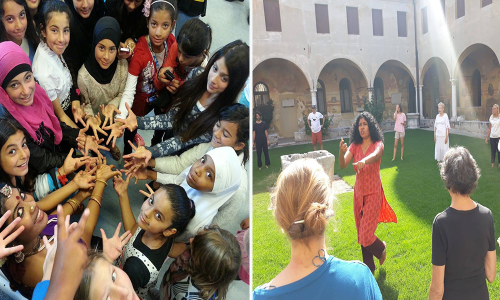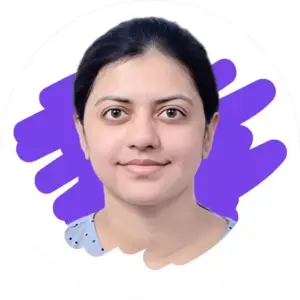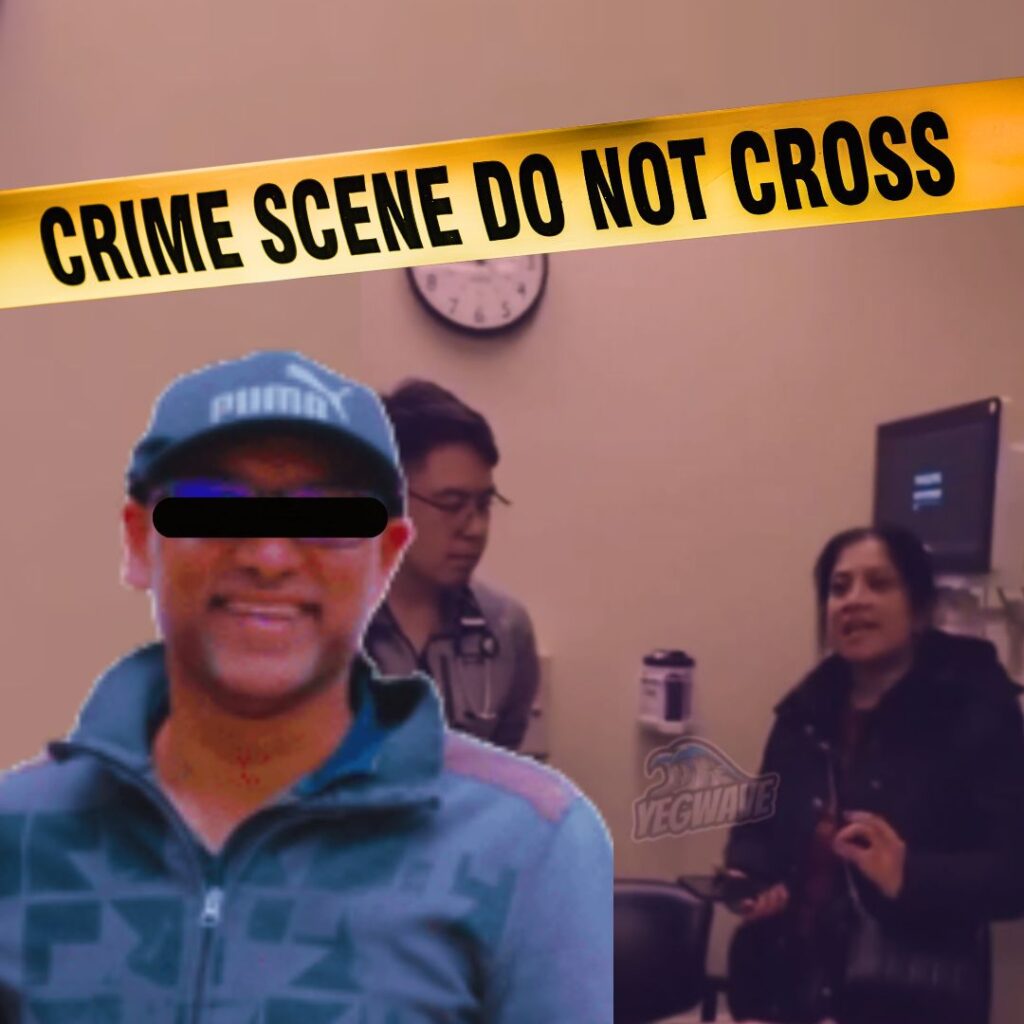In an empowerment-through-dance workshop with sex workers in Chennai, I asked one of the participants during a break – ‘you are dressed in a sari and I am too, how does a client know he can approach you and not me?’ The answer was – “A ‘good girl’ will not look (at a guy) in the eyes.”
That sentence was so powerful when I realised how much just a glance conveys and how I and other women unconsciously follow social dictates. We are conditioned into submissive behaviours starting from the very gaze.
This understanding triggered a whole series of technique using the eyes as a tool for empowerment, confidence building and expression – and netrabhinayam or the science of communication using the eyes is something my art form Bharatanatyam specialises in.
My journey using the arts for empowerment has been a long one. While in my youth, I was always interested in social work, it was during my first research grant in Southeast Asia that I realised the power the arts hold as a tool for social transformation.
I was studying the Ramayana in the classical performing arts of Thailand, Cambodia and Indonesia, studying the different ways Sita and Surpanakha were depicted when I realised how that reflected the ways in which societies perceive a ‘good’ or ‘bad’ woman.
Using techniques that came from this research I began working with sex workers, children rescued from sex trafficking, HIV positive people, transgenders, victims of religious and ethnic violence and more.
That’s when I really started seeing the enormous potential of using techniques from Bharatanatyam (as well as other dance and theater forms across the world) to actively question toxic social norms, rethink unjust power structures, resolve conflict.

Since then I have worked in more than 40 countries using the arts for gender equality, reproductive health, sex education, awareness of child and adult sex abuse, domestic violence, conflict resolution, empowerment of marginalised communities and more.
And it all begins with the body – the physical and sensory space. And then moves to emotional, intellectual, intuitive spaces – this is the technique I have developed called Katradi – empathy based social transformation.
Bharatanatyam dancers learn to play female, male and gender neutral roles. We study the way bodies move and that taught me gender doesn’t exist inside our brain as an intellectual concept; we live our gender, our bodies are socially conditioned by our gender.
The way we walk, the range of body movement, the tilt of our heads, the direction of our gaze – they reflect our culture, our gender. In a room, before even the first word is said, power dynamics are established just by how the people take their space, establish their presence or even dominance.
Babies don’t really move in gender specific ways but as we grow we take our space differently – girls’ body language shrinks, they are taught to keep their gaze lowered, their legs crossed, their movements limited. Boys take more space, their shoulders push back, their freedom of movement much greater.
If we want to fight for equality of different genders we have to start with the body, understanding and reconditioning our responses.
“Senjutaan, enna senjutaan!” (He did it, he did me.) A young girl broke down, weeping in my car when I was ferrying her to her after school tuition. She didn’t even have the words to say that she had been raped.
As I listened to her I realised I didn’t have the words in Tamil as well. So I taught myself. We created modules about sex abuse, reproductive health, fighting stigma against menstruation, domestic violence and more – and it all begins with respecting every part of our body, naming them, removing shame and judgemental behaviour, creating solidarity in a community.
Since 2012, our organisation Katradi has worked with 1,000s of youth, and reached more than a million through teacher trainings where we break the conditioning of our society that teaches our girls not to fight but to submit.
They are weighed down by words like honour-dishonour, modesty-shamelessness, duty, chastity. But once the body begins to move, the conversations start, the barriers begin to fall.
It is an immense joy to see a group begin awkwardly, with hesitation, loads of inhibition to engage in difficult conversations and watch as the workshop progresses using dance, theatre, sport, art how each participant evolves and takes their space.
In the last few months doing relief work in the pandemic with hundreds of stranded workers, many times at Chennai Central station there is literally a 1,000 to 1 ratio of men to women and often it feels tough to navigate that space.
But as one of the few women doing relief work on the ground I come across victims of violence and my house has been used as a safe house for girls fleeing abuse and sexual violence. Working in a refugee camp in France with Iraqi, Syrian, Algerian, Malian women, after a week of workshops, Aya*, a 16 year old said, “A woman’s body doesn’t belong to her. I feel like my body is a battlefield.”
Dhanashri* from Chennai said at our Bridging the Gaps youth camps that we hold for hundreds of young people across India, “Is it a sin to be born a woman? I feel people are watching us all the time, judging every aspect of our behaviour. I cannot be me.” Govindamma* in another workshop showed me scars on her stomach where she was stabbed with a broken bottle by her husband.
These women have suffered and when they report a crime against them, they suffer more. I know, because I have suffered too, as have many, many women in this country. I have suffered sexual aggression in multiple countries but remained silent worried it would impact my work and my freedom.
I, like many women, have been silenced in many situations, have seen my job given to men less capable, have had colleagues belittle my reputation, have had men push for ‘favors’ in return for opportunities .The list is long.
But for me, the fight is not just for women to have equality, respect, acceptance, access to education and opportunity, a life free of violence.
The fight is also for me not to give in to sadness or bitterness, not to dissolve in anger and hatred. I choose to surrender to love, even in times of great suffering – that is the gift Bharatanatyam and a steady meditation practice have given me. I wish to live an active life of compassion, creativity and positivity.
Also Read: #SheLeads: ‘Take First Step, Many Will Join’ Says Face Of Wheelchair Basketball In India
Note: This series #SheLeads is in collaboration with the US Consulate General Chennai as a commemoration of Women’s Equality Day on August 26.
If you too have an inspiring story to tell the world, send us your story at
mystory@thelogicalindian.com












